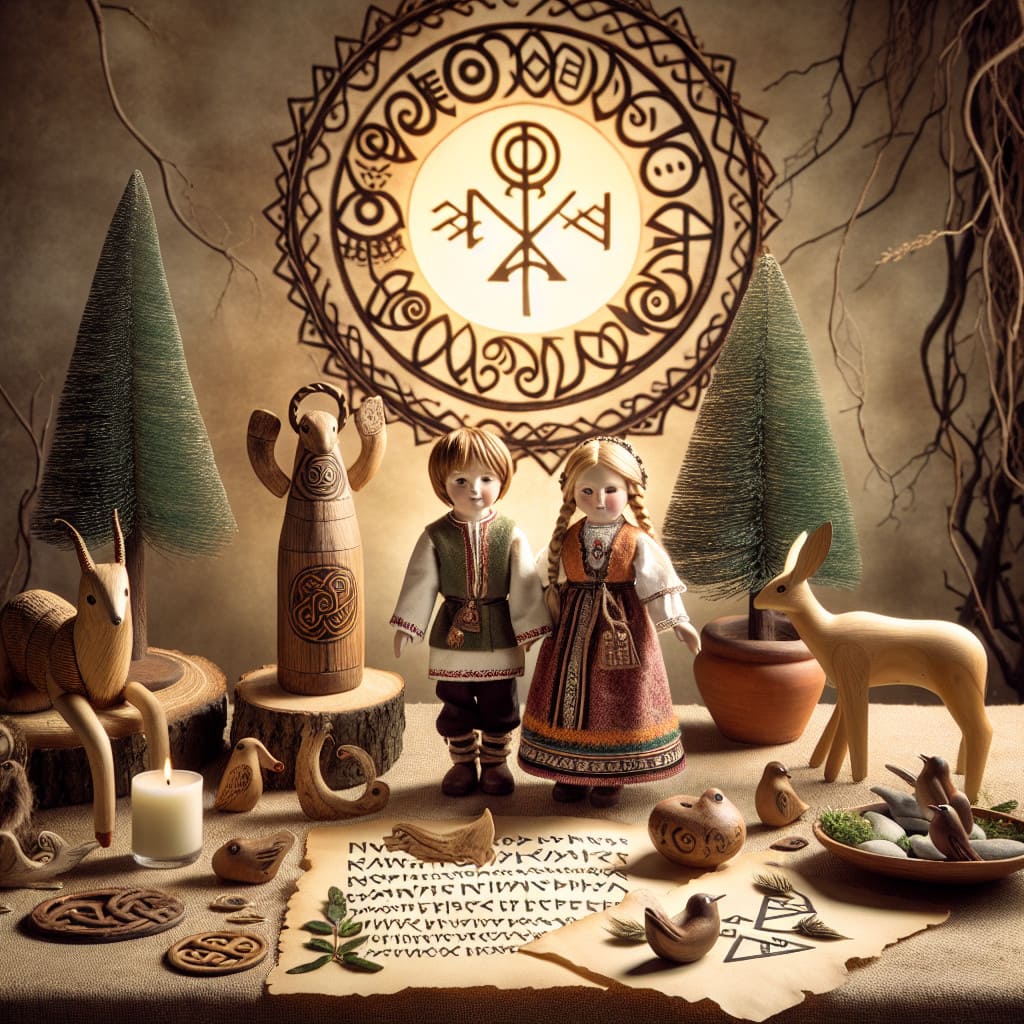The ancient Germanic people have left us with a rich history and culture, full of unique and interesting names. German pagan names are some of the most interesting and unique names, often reflecting the beliefs and practices of the ancient Germanic people. In this article, we will explore some of the most popular and interesting German pagan names, as well as their meanings and origins. We will also discuss the connection between these names and the ancient Germanic gods and goddesses.
German pagan names have been around for hundreds of years, with many of them still being used in modern times. These names come from a variety of sources including Germanic, Celtic, and Norse mythology.
The Meaning Behind German Pagan Names
German pagan names often have a special meaning attached to them. For instance, many of the names that come from Germanic mythology refer to gods and goddesses, while names from Celtic mythology often reference animals, nature, or other elements of the natural world.
Names from Norse mythology often have meanings associated with strength and courage. For example, the name “Odin” means “the ruler of the gods,” and “Thor” means “thunder.”
Popular German Pagan Names
Many of the most popular German pagan names are still used today. Examples of these include:
Fridolin: This is a male name that means “peaceful ruler.”
Adalbert: This is a male name that means “noble and bright.”
Gertrud: This is a female name that means “spear of strength.”
Brunhild: This is a female name that means “armored warrior.”
Siegfried: This is a male name that means “victory-peace.”
Ursula: This is a female name that means “little bear.”
Gunda: This is a female name that means “warrior woman.”
Berthold: This is a male name that means “bright ruler.”
Ingeborg: This is a female name that means “strong protection.”
Using German Pagan Names Today
Many people choose to use German pagan names today because they want to honor their heritage and pay tribute to the gods and goddesses of their ancestors. These names can also be used as a unique way to express your individuality and stand out from the crowd.
No matter why you choose to use a German pagan name, it is important to understand the meaning behind the name and the history that it carries. This will help you to make sure that you are honoring the gods and goddesses in the correct manner and that you are giving them the respect that they deserve.
Finding German Pagan Names
If you are looking for a German pagan name, there are a few different places you can look. The most obvious choice is to look in books that specialize in Germanic and Nordic mythology. Many of these books will list a variety of different names and their meanings.
You can also search online for lists of German pagan names. There are a variety of websites that provide detailed information about these names and the gods and goddesses that they represent.
You may also want to speak to your local librarian or conduct research at your local library. Many libraries have books that contain information about Germanic and Nordic mythology and the names associated with it.
Naming Your Child a German Pagan Name
If you are looking to give your child a German pagan name, there are a few things to consider. First, it is important to make sure that you understand the meaning behind the name and that you are using the name in a respectful manner.
It is also important to consider the impact that the name may have on your child. Some names may be seen as unusual or even offensive in some cultures, so it is important to make sure that you are aware of the connotations of the name you are considering.
Finally, it is important to remember that the name you choose for your child will stay with them for the rest of their life. It is important to make sure that the name you choose is one that you are comfortable with and that you believe will help to shape your child’s identity and self-esteem.
Finding Resources for German Pagan Names
If you are looking for more information about German pagan names, there are a few different places you can look. Many books about Germanic and Nordic mythology will contain lists of names and their meanings. You can also search online for websites that provide detailed information about these names.
You may also want to speak to your local librarian or conduct research at your local library. Many libraries have books that contain information about Germanic and Nordic mythology and the names associated with it.
Conclusion
German pagan names have been around for centuries and many of them are still used today. These names often have special meanings associated with them, and many of them have strong ties to Germanic, Celtic, and Norse mythology. If you are looking for a unique name for your child, researching German pagan names can be a great place to start.
In conclusion, German pagan names are an interesting and unique way to express a connection to the past. They have a long and varied history, with many of the names still in use today. It is important to remember that these names are steeped in tradition and symbolism, and should be respected and used with care. Ultimately, German pagan names are a great way to honor the cultural heritage of Germany and to bring a special and meaningful name to a new generation.





